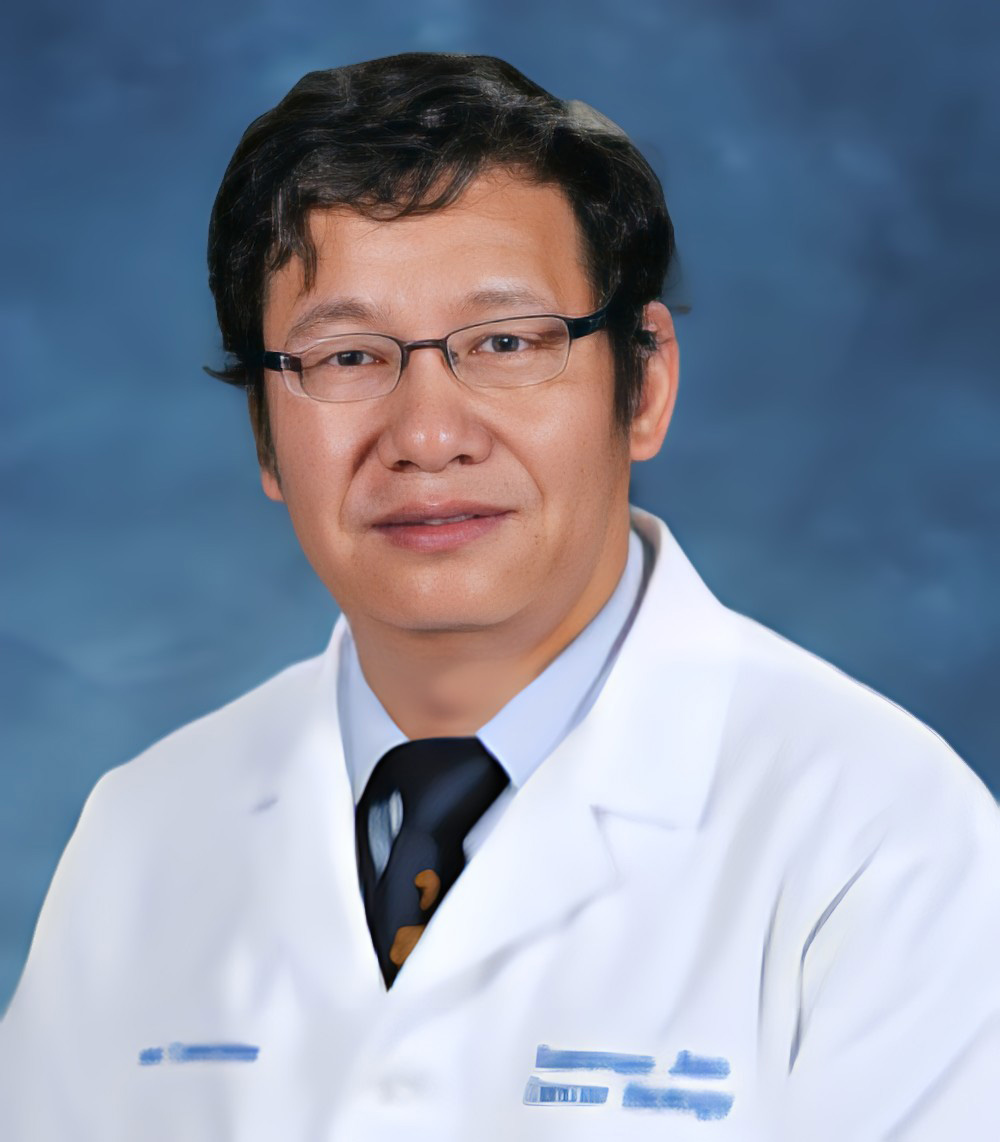
BSc., Biochemistry, Peking University, 1984
PhD., Cell Biology, Institute of Zoology, The Chinese Academy of Sciences, 1997
Visiting Fellow, NIH Clinical Center, 1998-2002,
Research Fellow, NIAID, NIH, 2002-2004
PostDoc, Georgetown University, 2004-2005
Jiao serves as the director of the joint program “Introduction to Clinical Research” between BSBI and Xavier University School of Medicine at Aruba. So far, 149 MD students have been trained in this program. As mentors, 14 postdocs and PhD students were benefited from his instruction
1. Improving outcomes in cancer treatment-related cardiotoxicity. NIH 1R43HL164131-01A1 (PI), 2022-2024.
2. Novel Mechanisms governing human breast cancer chromosome instability. DOD Breast Cancer Program Expansion Award, 2024-2027.
3. The role of Dach1 in breast and prostate cancer.
4. Cyclin D1 Function in Prostate Cancer.
The Role of chemokine and chemokine receptor in cell migration and tumor metastasis. Jiao and his collaborators found that CCR5 antagonists, originally developed as HIV entry inhibitors, reduces invasiveness and metastatic capability of breast and prostate cancer cells both in vitro and in vivo, with immediate clinical implications for evaluation as anti-metastatic drugs. They found that CCR5 play the role in breast cancer stem cell expansion and DNA damage repair. CCR5 antagonists can lower the doxorubicin dosage for chemotherapy, thus may reduce side effects of doxorubicin. They showed that IL-8 can induce partitioning of human CXCR1 chemokine receptors to lipid raft thus facilitate G-protein-dependent signaling. They elucidated that the tumor suppressor Dach1 reduces breast and prostate cancer metastasis through inhibiting IL8/CXCR1/2 axis. They showed that the PI3 kinase is the compass to sense chemoattractant gradient in chemotaxis.
The Role of c-Jun, a proto-oncogene, in breast cancer metastasis and tumorigenesis. Jiao and his collaborators found that c-Jun induces mammary tumor cellular invasion and breast cancer stem cell expansion. They showed that disruption of c-Jun reduces cellular migration and invasion through inhibition of CCL5, c-Src, SCF and hyperactivation of ROCK II Kinase. They also found that c-Jun is required for TGF-β-mediated cellular migration via nuclear Ca2+ signaling and play the role in alternative splicing.
The role of cyclin D1 in DNA damage/repair, cell migration, EMT and stem cell expansion. Jiao and his collaborators showed that cyclin D1 can promote cell migration. The role of cyclin D1 in cell migration is through the inhibition of thrombospondin-1 and ROCK signaling and requiring p27kip1. The different cyclin D1 alternative splicing forms have different function in cell migration, p27kip1 binding and DNA damage/repair responses. They showed that cyclin D1 play the role in G9a mediated DNA methylation and P300 mediated DNA acetylation. They found that cyclin D1 promotes the rate of onset and magnitude of mitogenic signaling via Akt1 Ser473 phosphorylation. They found the role of cyclin D1 in prostate cancer and promotes v-Src induced Trop2 proteolytic activation and thus influence prostate cancer stem cells expansion and differentiation. They showed that elevation of cyclin D1 in cancer stromal cells promotes heterotypic immune signaling and thus promotes cancer growth. They found that cyclin D1 can localized in cellular membrane region and membrane associated cyclin D1 enhance cell migration. They also found the role of cyclin D1 in autophagy, mitochondria function and Notch signaling.
The role of Dach1 in breast and prostate cancer stem cells, tumorigenesis and metastasis. Dach1 was initially cloned as a gene governing eye development. Jiao and his collaborators found the role of Dach1 in tumorigenesis. They elucidated that Dach1 restrains tumor growth through block c-Jun/YB-1 binding to transcription factor binding site. They found that the abundance of Dach1 is reduced in human cancers and Dach1 restrains stem cell expansion through reprogramming an Oct/Nanog/EKLF pathways. They found that Dach1 restrained both breast and prostate cancer cell migration and tumor metastasis and elucidated that the Dach1 reduces breast and prostate cancer metastasis through inhibiting IL8/CXCR1/2 axis.
Development of HCV vaccines. Jiao and his collaborators developed vaccines targeted Hepatitis C Virus nonstructural protein 3 with DNA-encoded secreted protein, cationic liposome encapsulated DNA or co-delivery of CpG and protein to Enhance and modulation of Th1 cellular immune response against HCV.
View Dr. Jiao’s publications on Google Scholar.